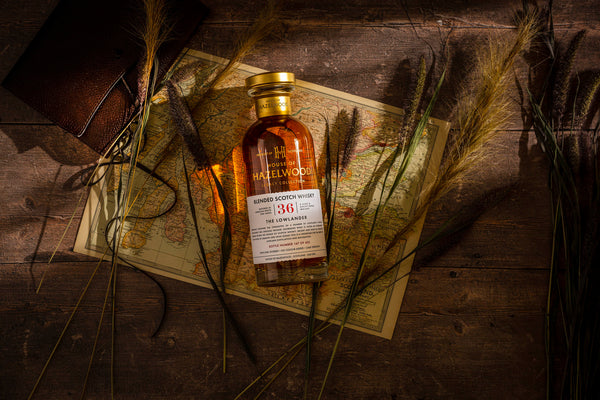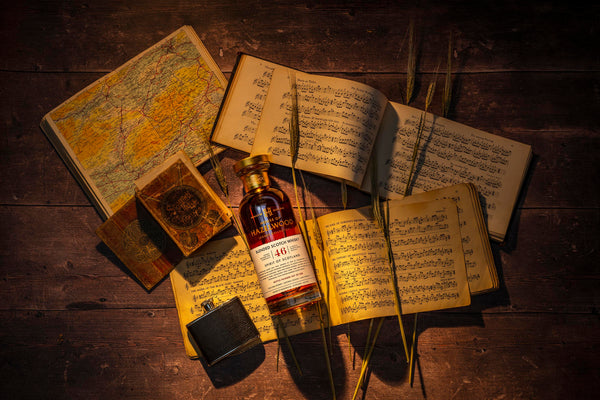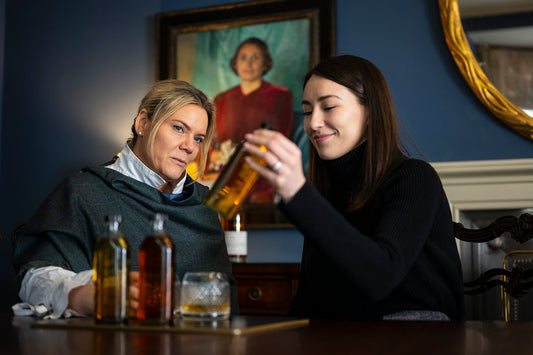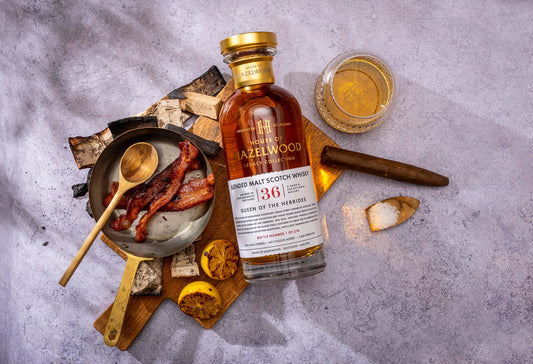It’s no secret that Scotland’s bard had an unwavering love for Scotch Whisky. He penned multiple poems and songs in its honour. To mark and celebrate his contribution, we’ve curated our most special selects, so you can enjoy a Burns Night Whisky that he himself would relish.
As the 25th of January approaches, clubs around the world prepare to celebrate the life and times of Robert Burns. Referred to as Scotland’s national poet, his values instil a sense of patriotic pride in many thanks to his inspiring works of poetry and song.
But for a man who had such an impact, Burns sadly met an early death – passing away at just 37 years old in 1796. Years later, Burns’ friends decided to gather his birthplace in Ayrshire to celebrate his life - an act which would solidify the very first Burns Supper – a tradition which would grow into a much-loved global event.
Who was Robert Burns?
Burns was born into a hardworking farming family in Alloway, Ayrshire. He grew up on an unconventional programme of education, ranging from informal teaching by his father, to in later life lodging with a tutor in multiple studies.
Despite this appetite for education, Burns never strayed far from this family profession – and by the age of 15 had secured a job as a principal labourer on a farm. It was at this time that he would attempt his very first poem.
Burns led a highly social life, including joining a country dancing school and forming a bachelor’s club, much to the chagrin of his father. This period would see Burns attempt to woo many women, an endeavour that would ultimately lead to his well-known reputation as a “ladies’ man”. By the time of his death, he would father no less than 12 children, with nine to his wife, Jean Armour, and three from extra-marital affairs.
Although farming was a recurring feature in his life, Burns tried his hand at other professions – including briefly becoming a flax-dresser in Irvine, until his career met an abrupt end when the shop caught fire during new year celebrations. Despite his ambition and charisma, Burns often faced an uphill struggle with finances, and was drawn to a life outside of farming in the pursuit of wealth, including contemplating work as a bookkeeper on the sugar-plantations in Jamaica – a venture which was ultimately abandoned. Perhaps his most contentious job was that of becoming an exciseman for the government – a role which he struggled with due to his own political and moral views.
As Burns approached his late-thirties, his health failed – the cause unclear, but possibly the result of an underlying health problem or early days labouring on the farm. But despite such a short life, his friendship and talent were valued dearly by both his friends and fans of his work. Today, this affection is marked in an annual celebration of his life’s works every January.

What was Burns’ association with Scotch Whisky?
Scotch Whisky was a passion for Burns. It featured frequently as a muse in his works – it was used as a vehicle to express concepts of togetherness, patriotism – and even political views. Browsing through his works, you need not search far to find his love for the amber nectar.
One of the earliest examples is that of Scotch Drink – an appropriately titled lament to the spirit. His love for Scotch was clear – this poem appearing second in his first ever published book. In the poem itself, he voices not only his love for Scotch Whisky, but fosters scenes of conviviality, and uses the drink as a metaphor for Scottish life. He even defends Scotch Whisky producers by rejecting the importation of alcoholic beverages from other countries. In his eyes, there was no spirit finer than Scotch Whisky.
Perhaps inspired by his time as a farmer, Burns even dedicated the poem of John Barleycorn to praising not just Scotch Whisky, but the methodologies and processes required to produce it.
Beyond poetry, Burns took to the medium of song to express his love for the liquid gold – and in 1788, composed a song titled The Deil’s Awa with the Exciseman – a song which portrayed the excisemen who taxed alcohol and hunted smugglers as villains – suggesting that they deserved to be taken away by the devil. This was somewhat controversial given he himself was under the employment of the government in this very profession.
His most famous depiction of Scotch Whisky comes from what many consider his magnum opus, Tam-O-Shanter. It is within this poem he regales his joy of sharing whisky with friends – so it should come as no surprise why this poem is often recited at Burns Suppers with a glass in hand.
Burns Night Whisky: Our Selection
Burns’ adoration of Scotch Whisky was abundant – but what Scotch Whisky would have delighted him in modern day? In this search to select the ideal Burns Night whisky, we look to the pivotal moments in his life for inspiration.

The Lowlander
Burns was born in the Scottish Lowlands (in Ayrshire) and although his ambitions took him across Scotland, it is irrefutable that he held his home of origin in great regard. So, what better way to symbolise this love for home than celebrating with a glass of The Lowlander, a 36-Year-Old Blended Scotch Whisky?
Described as the epitome of the often-overlooked Scottish Lowlands, this expression is wonderfully evocative, producing notes of granite, meadow grass and spun sugar. It was in Burns’ lifetime that the Lowlands region was officially designated making this more than a fitting tribute for a Burns Night supper.

The Old Ways
A short distance from Burns’ birthplace of Alloway lies Girvan Distillery, Scotland’s largest producer of Grain Whisky by volume. Of course, Girvan Distillery was built long after Burns’ passing, but it is conceivable to believe he would have been greatly mesmerised by this industrial behemoth and its capacity to produce Scotch Whisky, especially being in such proximity to where he grew up.
Thinking of his tribute to the makers of Scotch Whisky in John Barleycorn, The Old Ways, a 1972 Vintage Single Grain Whisky from Girvan Distillery seems a fitting match for the occasion. This Single Grain celebrates the whisky making long since lost to modern technology – the people, techniques and methods who have since moved on – an expression made with aromatic new make that will never be seen again.
Notes of camping stove burners, wax jackets, stewed rhubarb and gooseberries all grant passage to the nostalgia of The Old Ways – a notion that Burns would have almost certainly celebrated.

Queen of the Hebrides
We set sail to the Inner Hebrides with our final tribute. As an exciseman, Burns would have been on the watch for illicit whisky making activity – and it was said his song The Deil’s Awa with the Excisemen was penned on one such duty, surveying the seas for smugglers. Of course, we know from his song that he harboured a hatred for those who did his job.
Where better to enjoy whisky than from a Scottish island which during Burns’ lifetime harboured a sizeable illicit whisky making community: Islay. Queen of the Hebrides, a 36-Year-Old Blended Malt Scotch Whisky celebrates the unique, heavily peated character of Islay, bringing together the very best that the island’s distilleries have to offer.
Raise a toast to Burns’ life and heave away on notes of bonfires, smouldering ash, barbecued meat and a spritz of yuzu citrus.

Spirit of Scotland
In Scotch Drink, Burns’ unwavering passion is apparent not just for whisky, but for the spirit of Scottish life itself. So many of his poems celebrate the conviviality and coming-together of dear friends – a theme of Scottish hospitality that was clearly reciprocated by his social circle with the creation of the Burns Supper after his passing.
So, an aptly named Blended Scotch Whisky titled Spirit of Scotland would indeed be a suitable partner to toast his memory. Matured for no less than 46 years, this expression offers up a warming character of treacle, golden syrup and home baking, topped with a hearty slice of lemon meringue pie.
Whichever Burns Night whisky you settle on to mark the occasion, each and every whisky from the House of Hazelwood inventory will have been crafted with the same passion and dedication that Robert Burns himself poured into his work. It is guaranteed to be nothing less than a guid auld Scotch drink.




